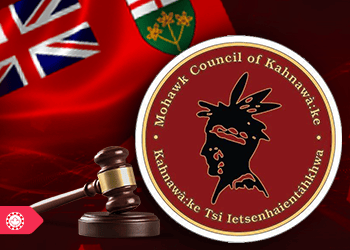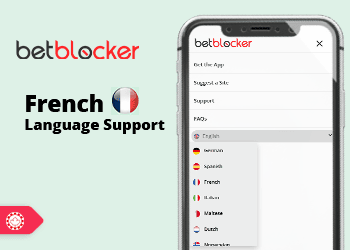
The fate of Ontario's open online gambling market rests in the hands of Lisa Brownstone, one of Ontario's Superior Court judges. The only thing left to the Mohawk Council of Kahnawake is patience while anticipating the outcome after the hearing. It could be months before the judge renders a verdict according to the GME Law reports covering the two days of court proceedings, which started on Tuesday 20 February.
The Mohawk Council of Kahnawake vs Ontario Government
The findings in the Mohawk Council of Kahnawake vs Ontario Government case, if proven, will leave Ontario in violation of the Federal Criminal Code 207(1)(a). Ontario's legality and constitutionality of its current iGaming regime were first challenged by the indigenous government organisation in November 2022. The Mohawk Council of Kahnawake filed a Notice of Application against the Attorney General of Ontario and the iGO to the Ontario Superior Court, claiming that the province does not correctly manage and conduct its iGaming scheme and that this is illegal.
iGaming Ontario lawyers launched their official counter appeal on Wednesday, in which the iGO refers to itself as the house under which all private operators fall under its command. The proceeding concluded in two hours which was initially expected to take around three days. The task now falls on Justice Brownstone, who will determine if the current poker, sports betting and Ontario online casino regime requires a teardown or if it will continue as normal.
Day 1: MCK States iGO is Failing to 'Conduct and Manage'
The MCK representatives didn't waste any time, claiming that the iGO is failing to correctly manage and conduct the current iGaming scheme. MCK also stated that iGO delegates its mandated role to private operators. Throughout the argument, MCK lawyers listed several factors of the gaming scheme which private operators have considerable control over, including:
- Being the primary beneficiaries of the scheme's revenue proceeds
- Having the board of directors make important decisions
- Implementing payment processing agreements with providers
- Operating their online platforms
- Marketing duties
- Compliance obligations
The judge interjected with probing questions during these arguments, seeking clarity on the important matter. One of Justice Brownstone's questions was if iGO could subcontract without breaching the current rules. MCK's response confirms that iGO can delegate, while emphasising that not all functions fall in this category. Private operators are managing and conducting, which are not sharable functions.
Day 2: Ontario Provides Three-Pronged Defense
Teaming up with the Ministry of the Attorney General, IGO delivered a defence plan, starting with the history of legislation in Ontario and its evolution. It came down to Ontario's and Canada's approach to gambling transitioning from a moralistic stance to a regulatory framework focussing on responsible gambling practises to safeguard the public.
Moving onto the legal understanding of what it is to conduct and manage, it came down to Ontario, controlling and running the gaming industry and staying in charge, with carefully written contracts with operators. In the debate, the meaning of "conduct and manage", according to iGaming Ontario, is to take charge, manage, control, lead and exercise administration, which means a higher level of direction instead of operating the games.
iGO Ends Day 2 with Musical Analogy
Attempting to harmonise the definition of conduct and manage, the government agency used a musical analogy. In utilising an orchestra conductor example, iGO quickly answered that the conductor never touches the instruments responsible for the symphony. Which is what is currently happening in the iGaming scheme, and a radio silence in the courtroom followed.
Justice Brownstone broke the silence with the dictionary definition of conducting, which does not necessarily come down to iGO carrying out all functions. MAG took over on behalf of Ontario, and the representatives of the Attorney General doubled down on the stance of the iGO, dismissing paramountcy conflicts. What followed was a challenge of the intended public interest claims by MCK, accusing and questioning the pursuing of private agendas.
MCK stated that under the current system, the role of IGO is more in line with somebody hiring a musician to play the symphony as opposed to conducting it directly. The final rebuttal from the group claimed that the primary purpose of operating a gambling scheme is for the Ontario province to manage and conduct it directly instead of choosing private operators to do this on their behalf.







